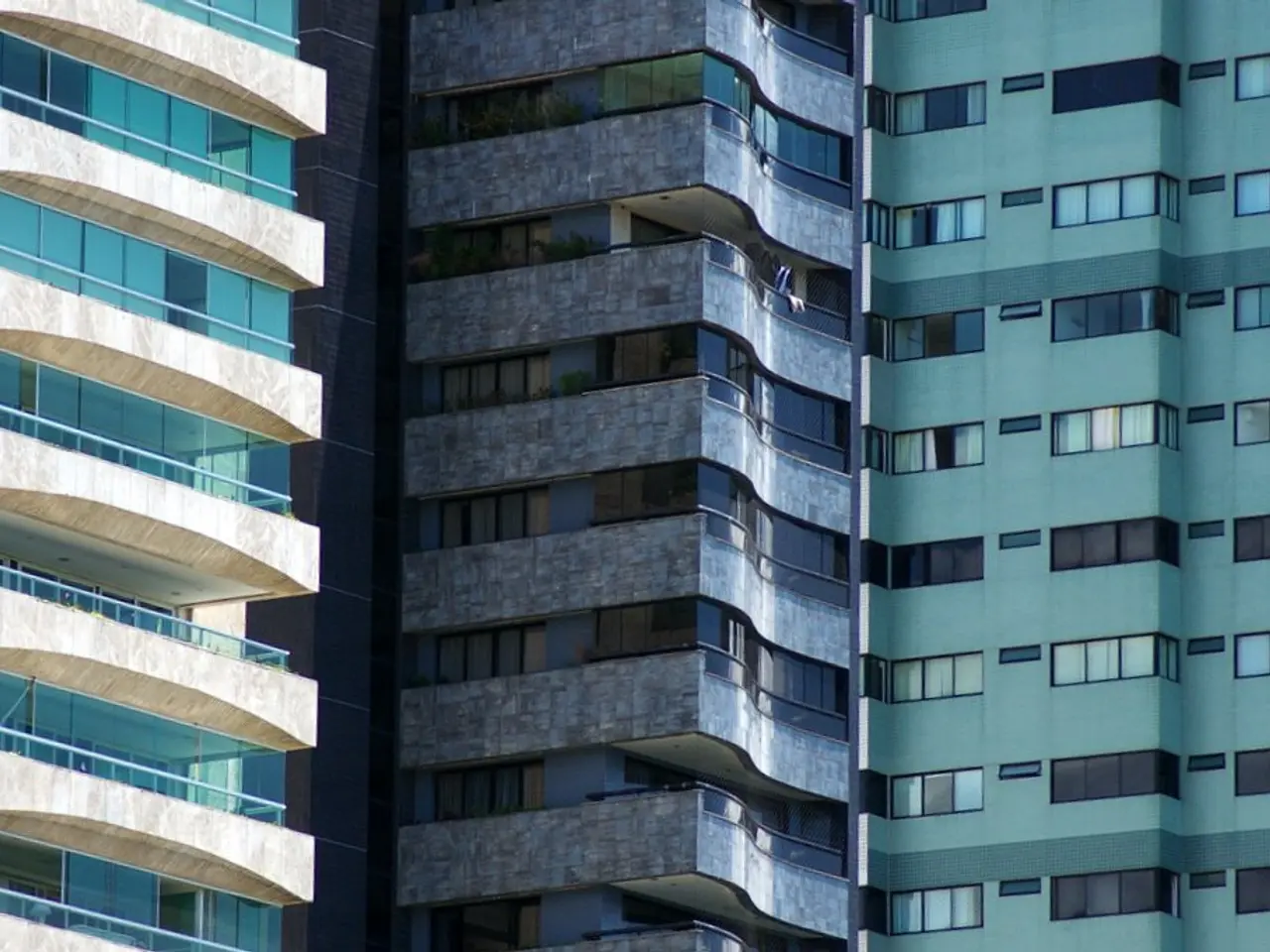Construction-focused Circularity in Malmö
The city of Malmö, Sweden, is setting a new standard for sustainable urban development in construction. With a focus on reusing building materials and reducing carbon emissions, Malmö is becoming a model for cities striving to lead in circular economy practices.
Malmö's strategies are multifaceted, with a priority on circular construction and building material reuse. The city emphasises dismantling existing buildings, focusing on the reuse and recycling of materials such as joists, beams, windows, bricks, and stone floors [1]. Ongoing projects in Sweden, including Malmö, are salvaging and repurposing components from old buildings to minimise waste and reduce the need for new raw materials [3].
In addition, construction companies engaged in Malmö’s building projects implement ambitious carbon emission reduction targets. For instance, the aim is to reduce CO2 emissions by 75% by 2030 compared to 2015 levels, and cut emissions related to concrete, steel, asphalt, and transportation—the main contributors to the building sector’s footprint [3].
Malmö also prioritises sustainability certifications like BREEAM Excellent, which assess and promote sustainability through efficient energy use, responsible sourcing of materials, and waste reduction during construction [3][2]. The city's initiatives are aligned with Sweden’s national policies supporting a circular economy, including Extended Producer Responsibility (EPR) laws and landfill bans on combustible and organic waste [1].
To reduce material footprint and embodied carbon, Malmö supports the use of lighter, more sustainable construction materials. This helps bring down the carbon footprint by approximately 8.2% in construction projects [1]. Waste management reforms and landfill reduction are also key, with Sweden’s 2024 law mandating food waste separation and reforms on waste management that shift responsibility to producers, aligning with Malmö’s goals to minimise residual waste landfilling [1].
Malmö is also investigating innovative solutions, such as the use of biochar as an organic fuel, made from garden and park waste [2]. The city is considering new ideas of circularity, such as adding movable walls and doors to workplaces to increase flexibility and efficiency [2].
The Svävarterminalen, a former hovercraft terminal in Malmö, is scheduled for dismantling, and the heavy load-bearing beams and pillars will be reused [2]. Many offices and university classrooms have become obsolete due to changes in work and study habits brought about by the COVID-19 pandemic [2]. The City of Malmö is implementing a stricter stance, requiring suppliers and contractors to conduct climate calculations for new constructions [2].
The City of Malmö is working with traders of virgin building materials to expand their supply to include reused resources, avoiding the creation of a parallel market [2]. Malmö's Environmental Programme includes a goal to make it easy for citizens to make environmentally friendly choices, such as cycling and using public transportation [2].
Dr. Anna Bernstad, Sustainability Strategist for Malmö Stad Stadsfastigheter, oversees the construction of public buildings in Malmö [2]. Anna believes that reusing building components will become one of the cheapest ways to achieve lower climate impacts from construction in the near future [2].
Malmö's leadership in sustainable construction and carbon reduction demonstrates the importance of open dialogue for implementing circularity in construction. The city is a shining example for city administration-led initiatives in handling carbon reduction, providing a blueprint for other cities to follow.
[1] Malmö Stad (n.d.). Malmö's Environmental Programme. Retrieved from https://www.malmo.se/globalassets/malmo/dokument/miljo/miljo-strategi/malmo-s-miljo-strategi/malmo-s-miljo-strategi-2027.pdf
[2] Byggvaran (2021). Malmö's Sustainable Construction Practices. Retrieved from https://byggvaran.se/malmo-s-sustainable-construction-practices/
[3] Malmö Stad (2020). Malmö's Construction Policy. Retrieved from https://www.malmo.se/globalassets/malmo/dokument/miljo/byggande/malmo-s-byggande-politik/malmo-s-byggande-politik-2025.pdf
- The strategies of Malmö, Sweden, in its sustainable urban development extend to various sectors, including environmental science, where it promotes the reuse and recycling of building materials like joists, beams, windows, bricks, and stone floors for climate-change mitigation.
- In its pursuit of reducing carbon emissions, Malmö's construction projects also prioritize sustainable living practices, aiming to cut emissions by 75% by 2030, through innovative solutions such as using biochar as an organic fuel and increasing flexibility in workplaces with movable walls and doors.
- Going beyond construction, Malmö's environmental program encourages lifestyle changes, encouraging citizens to cycle and use public transportation, demonstrating a holistic approach towards a sustainable home-and-garden, and circular economy way of life.




